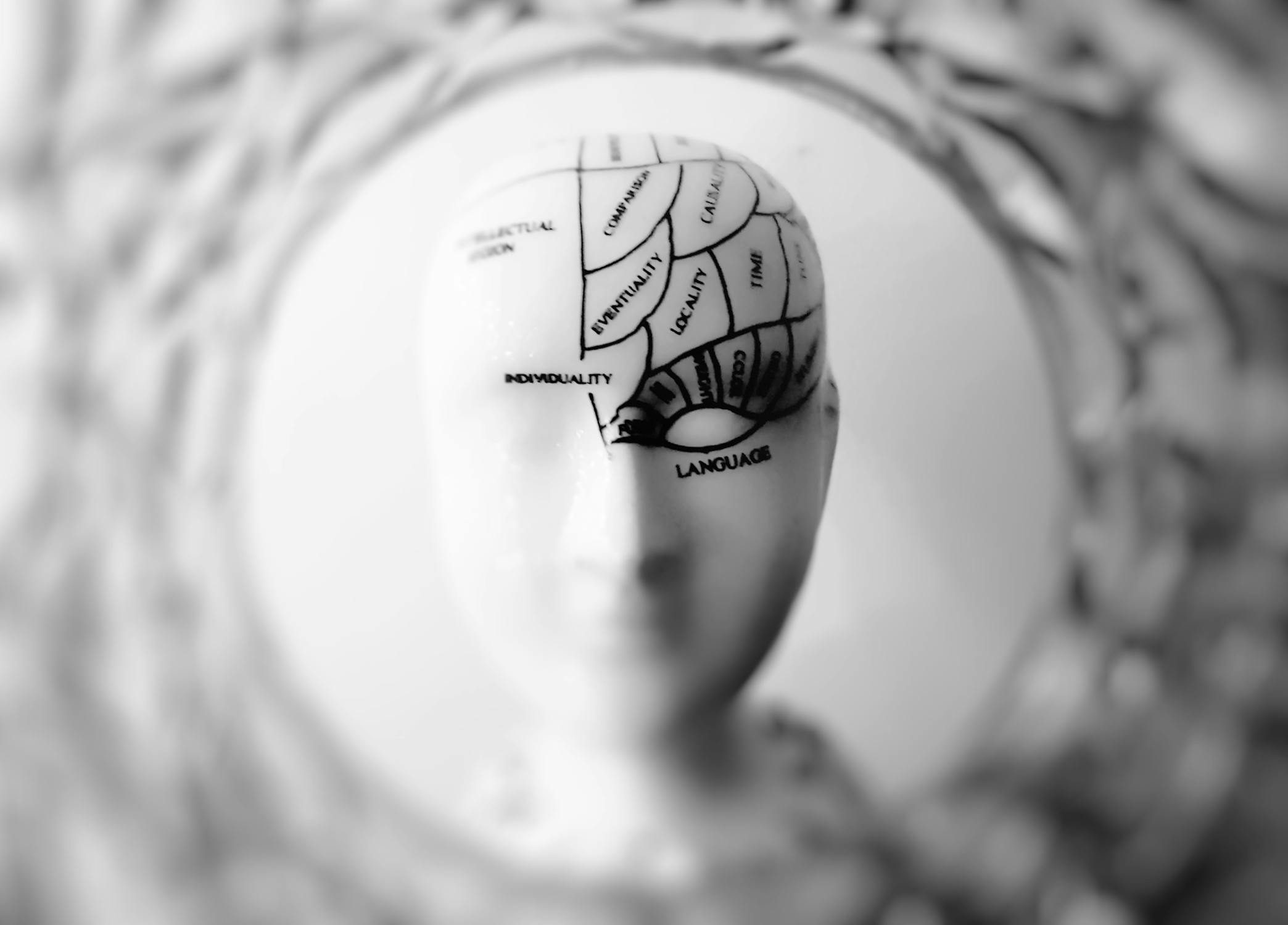The Labyrinth
There's no need to build a labyrinth when the entire universe is one.
~Jorge Luis Borges

- Dilemma #8
- Dilemma #7
- Dilemma #6
- Dilemma #5
- Dilemma #4
- Dilemma #3
- Dilemma #2
- Dilemma #1
- Other Materials

Do we have souls?
Only about a quarter of professional philosophers surveyed by Bourget and Chalmers (2013) still believe in dualism, and these are, with few exceptions, all theists who also believe in Libertarian free will (see Table 6). To me, this seems a bit like motivated reasoning, or a conclusion in search for premises. But that's a matter for another course...
Of course, that fewer and fewer philosophers believe in souls does not prove that souls don't exist. However, the topic of dualism may be what some members of the Vienna Circle called a pseudo-problem: an empty question, a problem without a solution.


Kant or the Utilitarians?
The field of ethics is a mess. The debates between the ethical theorists covered in class have been amplified both by the entry of new ethical theories into the fray (for example, Scanlon's contractualism), as well as attempts by both scientists and scientifically-minded philosophers to "biologicize" ethics (see Ruse and Wilson 1986 and Kitcher 1994). Recently, in fact, some scientifically-minded philosophers (sometimes referred to as naturalists) have waged an all-out empirical attack on various classical ethical theories. For example, John Doris (2002) goes after virtue ethics. Most relevant to us is neuroscientist and philosophers Joshua Greene's fMRI studies. Greene (2001) has used fMRI scanning to isolate the parts of the brain that are used for making Utilitarian- and Kantian-type judgments. He argues that he has “debunked” the theories, arguing instead that although neither is strictly-speaking true, we are better off being consequentialists.


Is morality relative?
One argument that we might give against cultural relativism is that it is a dangerous view. In particular, there are plenty of cases where what seem like different moral codes are actually just disagreements about basic matters of fact. Here's a little slideshow from my course on philosophical ethics:
Further, Rachels (1986) argues that accepting cultural relativism has some counterintuitive implications, such as:
- We could no longer say that the customs of other societies are morally inferior to our own. But clearly bride kidnapping is wrong.
- We could decide whether actions are right or wrong just by consulting the standards of our society. But clearly if we were to have lived during segregation, consulting the standards of our society would've resulted in believing that segregation is morally permissible (and that's obviously false).
- The idea of moral progress is called into doubt. For example, if we are relativists, then we could not say that the end of the Saudi ban on women driving is moral progress (but it clearly is).
It is a good principle to respect the cultural practices of others, if there is no fundamental disagreement on the facts. But too many cultures that believe blatantly false propositions (for example that having sex with a virgin can cure HIV or that women are not competent to represent their own interests) are protected by this invisible shield of cultural relativism. But the notion is ludicrous...
“If only one person in the world held down a terrified, struggling screaming little girl, cut off her genitals with a septic blade, and sowed her back up, leaving only a tiny hole for urine and menstrual flow, the only question would be how severely that person should be punished and whether the death penalty would be a sufficiently severe sanction. But when millions of people do this, instead of the enormity of being magnified millions fold, suddenly it becomes culture and thereby magically becomes less rather than more horrible and is even defended by some Western moral thinkers including feminists” (Pinker 2003: 273).
As if all this weren't bad enough for the cultural relativism, the notion of relative truth appears to be self-defeating. By its own logic, the theory of relative truth would have to be relative. So if you believe that truth is relative, as a relativist you can only really say that that's the truth for you. That's pretty bad.
And so the quest for the tree of knowledge of good and evil continues...


Do we only act from self-interest?
This view has been widely held for millennia, including by Niccolò Machiavelli (pictured above). Several disciplines have something to say on this topic. Please enjoy the slideshow below.
In sum, the consensus from various empirical disciplines is that psychological egoism is false.


Do we have free will?
It's tough to say... Some (e.g., Balaguer 2012) think this is an open question. Others, like neuroscientist Michael Gazzaniga, think that the 17th century concept of free will doesn’t survive the findings of the mind sciences; he thinks we have, at best, a very mitigated free will (see Gazzaniga 2012). Some thinkers not only agree with Gazzaniga (2012), but they think that to continue to think we are as free (as Descartes thought we were) is not only unscientific but even politically dangerous (see Harari 2018, chapter 3; see also this interview).


Does God exist?
It's tough to say... What we can say is that 73% of professional philosophers are atheists and that most of the theists in Philosophy specialize in Philosophy of Religion (see Bourget and Chalmers 2013, section 3.3). In fact, the combination of theism and specializing in Philosophy of Religion is the highest correlation between a particular view and specializing in a particular field (see Table 10). That same survey showed that belief in Libertarian free will and belief in God was one of the top ten highest correlations (see Table 6). So it could be the case that some thinkers are guilty of motivated reasoning. They already had a constellation of beliefs (in God and in Libertarian free will) and they found a field that pretty much paid them to argue for that position.
Again, this is not to say that we have proof that God does not exist. However, some scientists and scientifically-minded philosophers have attempted to "debunk" belief in God by showing that it is a natural outgrowth of our cognitive capacities. For example, beginning with Dennett (2006), various cognitive scientists have tried to make the connection between one or several of our evolved traits and the belief in God. Dennett's work is certainly very interesting. You can see a lecture of his here. I obviously can't get into all of this here. Instead, I'll just give you a brief overview of some of my favorite recent empirical work on religion.
Food for Thought


Empiricism or Rationalism?
Locke was wrong (about some stuff, at least)...
In his 2003 The Blank Slate, Steven Pinker dispels the commonly held Lockean view that we are born with a blank slate. We, in fact, have several mental mechanisms built into us by evolution, such as a language acquisition device and an intuitive physics (see Pinker 2003: 220-9). Some thinkers go even further than the list given by Pinker. For example, Richard Joyce (2007) argues that we have an innate morality module that was programmed into us so that we can coordinate our behavior with each other, inform each other about who’s a good, say, foraging partner, and form more cohesive groups through shared norms and practices. In either case, we are not born with a blank slate.
Even closer to his own time, Locke's views came under attack. Famously, David Hume thought that Locke’s prefered type of reasoning, induction, was unjustified. The basic idea behind induction is that what has happened in the past will likely happen again. For example, if copper dissolved in nitric acid today, then it will likely do the same again tomorrow. But you only believe that because, in the past, what happened in the past happened again. In other words, the only justification for induction is more induction, which is fallacious circular reasoning. This is called The Problem of Induction.
Sidebar: Hume didn’t even believe we understood causation accurately. For Hume, causation is just a constant conjunction of a cause and an effect; he claimed we never actually witness causation and that it is just a habit of the mind. See this helpful video for more information.
It’s even the case that Locke’s views on how we represent the world are most likely false. Locke believed that our sense impressions of the outside world very likely actually resemble the world itself; we can be reasonably sure that the world is somewhat close to the way our senses interpret it. Kant famously disagreed with him, saying (among other things) that we can never know the world as it really is with our senses alone but that we must use reason to attempt to learn some things about the world-in-itself. Relatedly, Kant argued that time and space do not exist independently of human sensibility; that time is actually a part of how we interpret reality. Interestingly enough, Kant was right and Locke was wrong! Your senses do not at all represent reality as it is; they only track what is fitness-enhancing (Hoffman 2019). Moreover, the future of physics is one in which spacetime is not a feature of the fundamental equations of physics (Rovelli 2018). In other words, time really is a construct.
But the rationalists were wrong too...
With regards to Descartes and the rationalists, according to some theorists, e.g., Mercier and Sperber 2017, it appears that the evolutionary origin of our capacity to reason has a social origin: we evolved the capacity to reason not to think about and understand the world, but because it helped us win arguments. This is why unaided reason, such as Descartes' method of doubt, simply confirms our pre-existing beliefs, i.e., confirmation bias. After all, isn't it surprising that during his Meditations, Descartes ended up just discovering that Catholicism was true?
There are other theories about the function of our capacity to reason, but most of these theories also stress the social function of reason, not the intellectual function of reason (see also Tomasello 2018). In short, reason doesn’t do what the rationalists thought it did. This is why scientists and philosophers have moved away from this sort of rationalism (see Wilson's quote below).
“But history shows that logic launched from introspection alone lacks thrusts, can travel only so far, and usually heads in the wrong direction. Much of the history of modern Philosophy, from Descartes and Kant forward, consists of failed models of the brain. The shortcoming is not the fault of the philosophers, who have doggedly pushed their methods to the limit, but a straightforward consequence of the biological evolution of the brain. All that has been learned empirically about evolution in general and mental process in particular suggests that the brain is a machine assembled not to understand itself but to survive” (Wilson 1998: 96).
The Second Great Schism
Just as the field of Philosophy loosely-speaking broke up into two camps in the early modern period, more recently the field has split up gain. Beginning the late 1800's, some philosophers were impressed by the progress of science and sought to build their philosophies with input from the sciences. In other words, they wanted their work to be continuous with the sciences. They are generally referred to as analytic philosophers.1 Others decided that Philosophy was really autonomous, and that you can build sound philosophical theories without input from the sciences. They are generally referred to as continental philosophers. This schism continues today.
"[In the 19th century,] the ideal personage of the scientist was taking shape, and only then was Philosophy, for its part, forced to split into two camps. There were those who found this new figure of the scientist impressive and longed to share in his new cultural caché. Others, by contrast, found his purview, that of building upon, improving upon, and channeling the forces of the natural world, ‘hacking through nature’s thorns to kiss awake new powers,’ in James Merrill’s words, inadequate for the central task of Philosophy as it had been understood by one prominent strain of thinkers since antiquity: that of understanding ourselves, our interiority, and the gap between what we experience in our inner lives and what the natural world will permit to be actualized or known” (Smith 2019: 126).


Further Down the Spiral...
-
-
On Buddhism:
-
Book: Mark Siderits, Buddhism as Philosophy: An Introduction
-
Note: Students interested in Buddhism would do well to read (at least) the first three chapters of this book.
-
-
-
On Artificial Intelligence:
-
Reading: Eliezer Yudkowsky, Artificial Intelligence as a Positive and Negative Factor in Global Risk
-
-
On Dualism:
-
Reading: Howard Robinson, Dualism
-
-
On Kant v. Utilitarianism:
-
Reading: Joshua Greene, From neural ‘is’ to moral ‘ought’: what are the moral implications of neuroscientific moral psychology
-
Video: Talks at Google, Joshua Greene
-
Related Video: Here's an interview with Stanford scholar, Robert Sapolsky, on evolutionary misfirings when making moral judgments.
-
-
Audio: RadioLab, Chimp Fights and Trolley Rides
-
Related Audio: RadioLab, Driverless Dilemma
-
-
-
On Moral Relativism:
-
Appendix C: Cultural Relativism
-
Note: An important distinction can be made here that is not covered thoroughly in this course: the distinction between weak cultural relativism and strong cultural relativism. This is the topic of Appendix C.
-
-
Reading: Michael F. Brown, Cultural Relativism 2.0
-
-
On Psychological Egoism:
-
Video: C. Daniel Batson, Empathy Induced Altruism
-
Note: In this video, C. Daniel Batson, professor emeritus at the University of Kansas, presents on Empathy-Induced Altruism (the existence of which refutes psychological egoism).
-
-
Advanced Material—
-
Reading: Peter Turching, Chapter 3 of Historical Dynamics
-
Reading: C. Daniel Batson and Adam Powell, Altruism and Prosocial Behavior
-
-
-
On Free Will:
-
Reading: Gareth Cook, Neuroscience Challenges Old Ideas about Free Will
-
Video: Imagine Science Films, How Free Is Your Will? An interview with Michael Gazzaniga
-
-
On God:
-
Video: Closer to Truth, Justin Barrett - Does Evolutionary Psychology Undermine Religion?
-
Advanced Material—
-
Reading: Peter Van Inwagen, The Problem of Evil
-
Note: This is a series of lectures where Van Inwagen defends theism. Most relevant to the course is Lecture I.
-
-
Reading: Randy Firestone, Paley’s version of the Teleological Argument is Based on an Equivocation Fallacy: There is No Order in the Universe Which Resembles the Order of a Watch
-
-
-
On the Blank Slate:
-
Video: TEDTalks, Steven Pinker—Human Nature and the Blank Slate
-
-
On Rationalism:
-
Audio: Philosophy Bites, Dan Sperber on The Enigma of Reason
-
Audio: The You Are Not So Smart Podcast, Why do humans reason? Arguments for an argumentative theory
-
-
On the Senses:
-
Video: TEDTalks, Do we see reality as it is? | Donald Hoffman
-
Video: The Royal Institution, The Physics and Philosophy of Time - with Carlo Rovelli
-
Podcast: You Are Not So Smart Podcast, How a divisive photograph of a perceptually ambiguous dress led two researchers to build the nuclear bomb of cognitive science out of socks and Crocs – Part One
-
-
On Bullshit:
-
Reading: G.A. Cohen, Deeper into Bullshit
-
-
On Philosophy:
-
Reading: Bertrand Russell, The Value of Philosophy
-
Video: Oxbridge Philosophy— John Cleese and Jonathan Miller
-
On Hume:
-
Video: New College of the Humanities, Simon Blackburn on David Hume
-
Video: BBC, Philosophy Overdose, David Hume
-
Reading: William Edward Morris and Charlotte R. Brown, Stanford Encyclopedia of Philosophy Entry on David Hume Sections 3, 4, and 5
-
-
On Logical Positivism:
-
Reading: Internet Encyclopedia of Philosophy, Entry on Rudolf Carnap
-
Note: Most relevant to the course are sections 2, 3, & 4. Although I should add that the section on his life is interesting.
-
Video: Philosophy Overdose, Logical Positivism & The Vienna Circle
-
-
Reading: Jordi Cat, Stanford Encyclopedia of Philosophy, Entry on Otto Neurath
-
Video: The Ideas of Quine
-
-
-
Footnotes
1. I am not only in the analytic branch, but I am considered a radical even within this branch. My position is officially referred to either as philosophical naturalism or neopositivism, but I've also been referred to as an empirical philosopher, if the person is being kind, and as a ruthless reductionist or logical positivist when they don't like my views very much.

